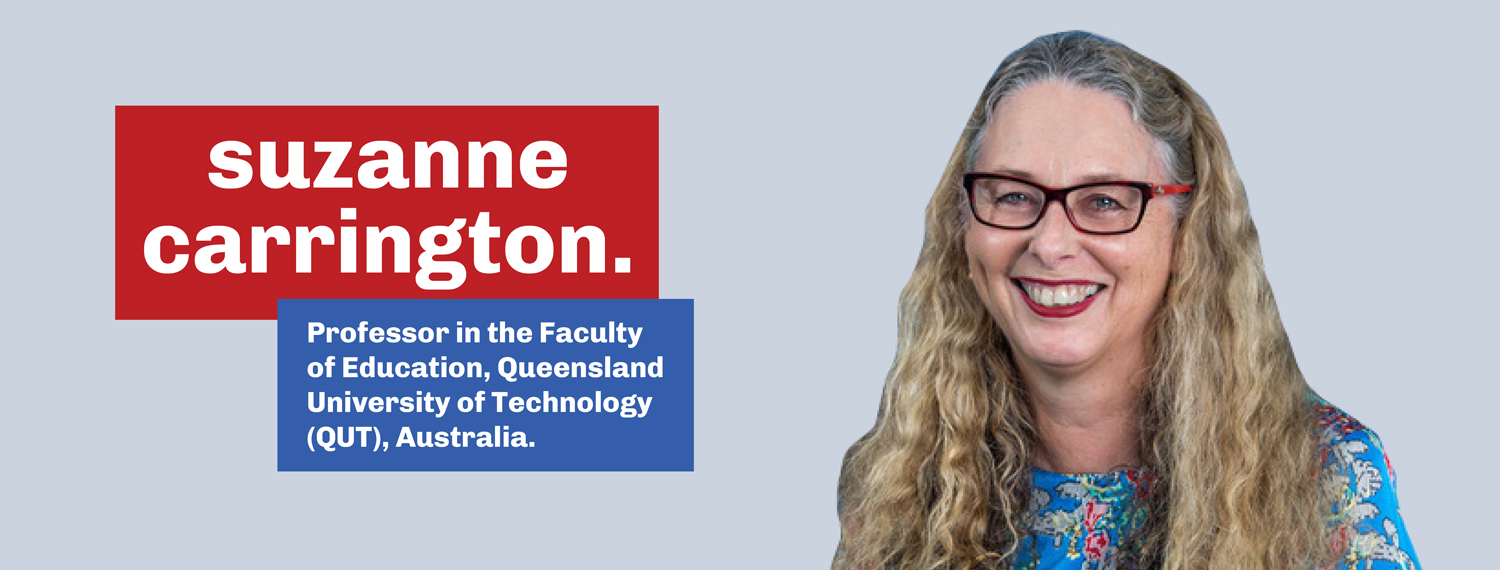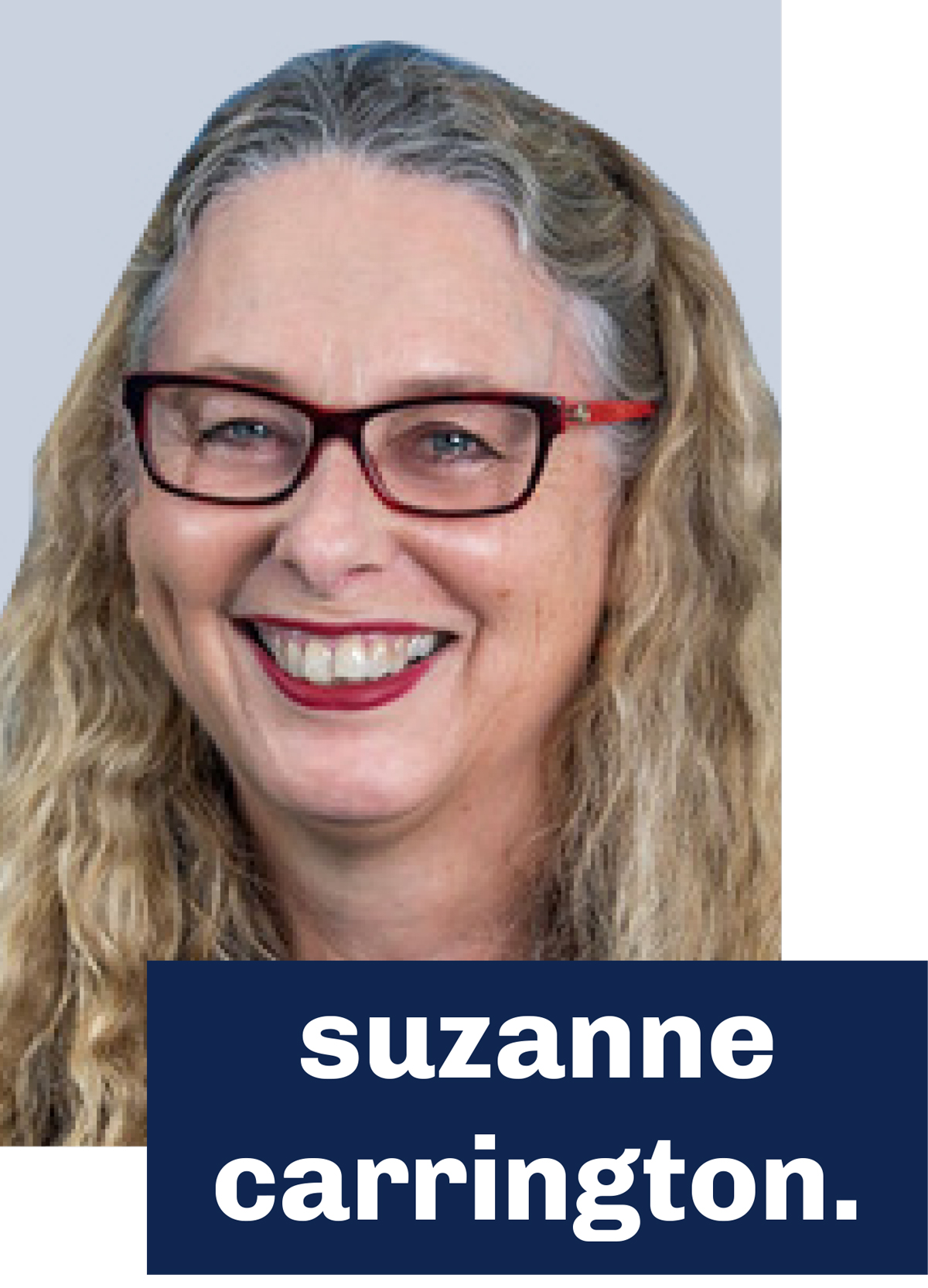

Suzanne is a Professor in the Faculty of Education, QUT Australia. Suzanne’s areas of expertise are in inclusive education, ethical leadership for inclusive schools, disability and teacher preparation for inclusive schools. She has engaged in research to inform policy and practice in Australian and international education contexts and has received over 3.5 million dollars in research funding. She has published over 90 journal publications, books, book chapters and research reports. She is currently the Program Director of Program 2: Enhancing Learning and Teaching for The Cooperative Research Centre for Living with Autism (Autism CRC).
Her work appears in leading international journals including Autism, Clinical Child and Family Psychology Review, Developmental Medicine and Child Neurology, Journal of Autism andDevelopmental Disorders, BMC Public Health, Teachers and Teaching: Theory and Practice.
Her work has also been cited in numerous reports and policy recommendations such as
- World Report on Disability 2011, by the World Health Organization
- Inclusion in Education towards equality for students with disability: policy recommendations
written with Children with Disability Australia 2013
- Engaging young early school leavers in vocational training: Informing Policy and Practice in
Australia’s Training System, an NCVER Research Report
- Literature review: Student-centred schools make the difference, Australian Institute for
Teaching and School Leadership.
Ethical Leadership for Inclusive Schools
In recent years the Australian media has drawn attention to concerns about the school experiences of students with disabilities. This attention leads us to consider the key role that school leaders have in developing and sustaining inclusion in their schools. Focusing on ethical leadership and the development of an inclusive school culture, I will first discuss legal and policy imperatives in Australia. Second, I will turn our attention to ethical leadership theory, highlighting the work of writers such as Starratt (2012, 2014). We will consider ethics of care, justice, critique and community. Third, I will highlight the important consideration of school leaders’ and teachers’ beliefs and values influencing interactions among school community members and the school’s practices.
I will emphasise that for long-term improvements, school leaders need to resist the urge to implement practices leading to rapid improvement and focus more on “slow schooling”. The focus will be on leading school staff in deep and complex thinking and planning to find whole school approaches to support learning for all students. Fourth, I will offer practical ideas and questions for school leaders to consider in their work with teachers, parents, and students. I will present several dilemmas school leaders may wish to use in professional development to stimulate reflection and deliberation about inclusion within their schools.